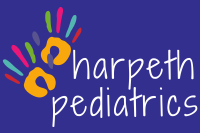Vaccine Statement
Focused on the safety and health of your children, committed to evidence-based science, humbly aware of the concerns and theories, and with hearts filled with compassion for you and your children, here is a summary of why we vaccinate children.
Incredible success. Worldwide since 1974, vaccination has averted 154 million deaths, including 146 million among children younger than 5 years of whom 101 million were infants younger than 1 year, according to a study published in the Lancet. For every death averted, 66 years of full health were gained on average, translating to 10.2 billion years of full health gained. 101,000,000 infants saved over a 50-year span is more than 2 million precious babies saved per year. Incredible.
Vaccination safely protects your child against dangerous and deadly infections. Vaccinating other children also protects your child from those infections. Keeping kids protected from dangerous infections is a community-wide, team effort.
A team effort. Having a high community vaccine rate is akin to a dam holding back water. While the dam does not have to be 100% perfect, it needs to be as close to that as possible or these diseases will penetrate through like water through cracks in that dam. Too many cracks can rupture the dam. In America, our overall vaccine rates have fallen from 95% to less than 93% in the last few years and, as expected, the diseases are taking advantage. We are facing the largest measles outbreak in America in decades. Remember, that sub-93% average includes both community pockets of 75% and places like Harpeth Pediatrics where we strive for 100%. And despite our efforts, unvaccinated pockets are pulling the average down further and further. We all need this to stop.
An example. Measles is a dangerous and deadly infection that presents initially with high fever and cough. It can easily be mistaken for the flu before the rash occurs days later. The point is exposure can happen easily. It is also an incredibly contagious virus. It is airborne and spreads exponentially, where one patient spreads it to at least 12 and those 12 spread it to 144 and those spread it to 1,728. So, it takes no time to move through the nation. It finds its way to unvaccinated people quickly, with a 95% infection rate after exposure (simply being in the same room). It can infect vaccinated children as well, but thankfully at a much lower rate. 20% of patients with measles get hospitalized. It can cause brain swelling. It commonly leaves the immune system permanently damaged. It can, and does, kill children. And it is safe and easily preventable with two shots.
Shared responsibility. Measles is just one example. As a pediatric practice, we have a serious responsibility to vaccinate all our patients on the American Committee on Immunization Practice's (ACIP) recommended schedule. That is our policy. While there are a few medical contraindications to vaccines, these are rare. We vaccinate our own children without hesitation. Our children protect your children, and your children protect ours. It is a team effort. Thanks to the cooperation of our wonderful patient population, when a family brings an infant into our clinic, they have full assurance that we have done everything possible to prevent exposing that vulnerable baby to preventable, deadly infections.
Expert recommendation. We have been fully trained, licensed, certified and are re-certified continually as experts in children's health. We also have decades of experience immunizing children. Ours are not opinions, they are professional, expert recommendations. Our recommendations are up-to-date, and evidence based. Safety is our primary objective. For instance, we know that newborns cannot have plain water, that infants cannot have honey, and that every child should be vaccinated on the continually reassessed and fully vetted ACIP immunization schedule. Any alternative to that schedule is less safe...for everyone. And, while we are fully aware of each of the many critiques and theories posed about vaccines over the years, the evidence remains clear that the immunization schedule as recommended by the ACIP is not only safe, but also vitally necessary.
How vitally necessary is it? Remember from above that since 1974, vaccination has averted 154 million deaths. That could have been you. That could have been me. It is a massive success that we should not take for granted.
So please join us in our efforts to keep all the children of the community safe and healthy. If you have been hesitant about vaccines, we would love to discuss it all with you. We can discuss each vaccine and each of your concerns. If you are behind on vaccines, no problem! Come on in and together we can figure out which ones you still need and can make a comfortable plan to catch your child up. We are a team, after all. And remember, together we will always keep the health and safety of your child as the number one priority.
Sincerely,
The team at Harpeth Pediatrics
Vaccination Policy
We follow the policies recommended by the American Academy of Pediatrics and the Centers for Disease Control and Prevention (CDC) Immunization Guidelines.
We are committed to protecting the health of your children; therefore, we require all our patients to be vaccinated.
